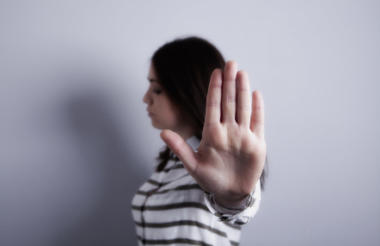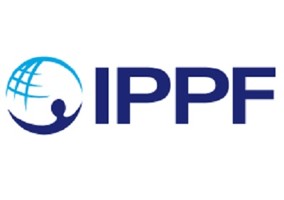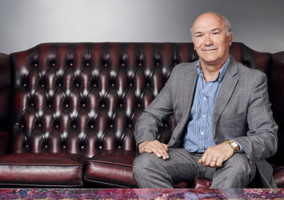In April’s edition of Fundraising magazine, a sister publication to G&L, British Red Cross fundraising policy manager Ruby Bayley-Pratt wrote a hard-hitting article laying bare the sexual harassment that fundraisers are too often exposed to in the course of their work.
In the same issue, Heather Hill, chair of fundraising thinktank Rogare, wrote a separate article outlining some of the early findings from a global research project Rogare is conducting into the experiences of “donor dominance” across the world. In this study, fundraisers are asked questions such as whether they had ever encountered a situation where donors had tried to get benefits they weren’t entitled to; or where a donor had told them they would not make or would withdraw a gift if they didn’t get what they wanted, whatever that may be; or whether they had ever experienced sexually inappropriate behaviour by donors.
Rogare’s preliminary results, and the reactions to Bayley-Pratt’s piece, clearly show that the Presidents Club scandal in 2018 was by no means a one-off. Fundraisers from 15 countries have reported story after story of #MeToo incidents, ranging from innuendo and inappropriate banter to unwanted touching, improper propositions, and even one case of sexual assault. Around half of the 350 female fundraisers who have responded to the survey so far reported experiencing sexual harassment; as have a third of men too.
“Anecdotal reports from fundraisers around the world show that sexual harassment is a regular part of a female fundraiser’s professional experience, from being used as ‘bait’ for older wealthy men to allegations that some non-profits specifically hire young women to ‘steward’ male major donor relationships,” Hill says.
She adds that because philanthropy is a voluntary act, fundraisers tend to adopt a “scarcity mentality”, fearing that if they do push back against inappropriate demands and refuse to accept a donation with strings attached, the requirements of their job mean they still have to replace that gift from somewhere. “This means that a lot of them don’t report it,” says Hill. “And even if they do, what we are seeing is that overwhelmingly the organisation does nothing. The fundraiser is just told to get along and act as if nothing happened.”
Bayley-Pratt had some specific UK-based comments: “The more conversations I have with my fellow fundraisers, the more accounts of sexualised, inappropriate behaviour from donors I collect – from the supposedly innocuous compliments and terms of endearment, a hand placed a little low on the back or on the knee, to explicit objectification, groping, and propositioning for sex.”
She added: “It is common knowledge that several of the ‘forefathers of fundraising’ – men to whom we give guru status – can get ‘a little bit handsy’.
“Our leaders need to wake up to the fact that zero tolerance is not our reality and do more.”
Institute pledges to act
To its credit, once the articles were published the Institute of Fundraising (IoF) reacted swiftly, setting up a taskforce to examine the problem and look at whether it can improve complaints procedures and strengthen the profession’s code of conduct. IoF chair Amanda Bringans said: “There is no place for sexual or any other form of harassment within our fundraising community. We want to actively encourage people to come forward and report complaints if they have experienced sexual harassment by a member of the Institute or at an Institute event, no matter when that incident happened. Those incidents will be investigated fully, even if the person complained of resigns their membership of the Institute.”
But Hill points out that sexual harassment is not the only type of inappropriate behaviour exposed by Rogare’s study. Responses show clearly that donor dominance manifests in other ways too, and that this power imbalance also extends beyond donors to charity trustees.
She told G&L: “Trustees are coming out of this badly in all regions. In the UK, some fundraisers gave qualitative responses about issues they’d had with trustees using their role to have influence beyond what the scope of their role actually is. It’s not just sexual harassment, but things like directing business partnerships to get access to things they wouldn’t normally be entitled to, or coming along to the charity’s events and bringing their friends, demanding extra tables, extra seats, front of the line, early access to tickets or access to whoever the guest of honour is.
“We’re also seeing inducements or threats to ‘sour’ certain individuals on the organisation, such as ‘I can bring you this person if you let me do this’, or, ‘If you don’t let me do this I’ll make sure so-and-so never gives you a dime’ or ‘I’ll ruin your reputation’. So it’s not just the philanthropic angle; for those who are in a governance role, it’s about using their influence and their connections to gain leverage.”
Rogare has also since launched another project looking at wider issues related to gender in fundraising, led by Caoileann Appleby, strategy director at Ask Direct. She said: “Gender in fundraising is an issue that had been simmering for many years before the #MeToo movement and the scandals of the Presidents Club fundraising dinner and Oxfam’s safeguarding failures caused it to boil over.
“It is clear that as a profession we urgently need to tackle gender issues and work to improve how we protect and develop all fundraisers – not only for our benefit, but also for our organisations and beneficiaries.”
#AidToo and NGO Safe Space
Fundraising is not the first area to raise this as a problem within the charity sector. Last year, in response to #AidToo, a group of intersectional feminists, including journalist and former aid worker Shaista Aziz and Save the Children whistleblower Alexia Pepper de Caires, came together to establish NGO Safe Space, a platform to record individuals’ experiences of sexual harassment in the UK aid sector. In its first two weeks NGO Safe Space received more than 80 anonymous testimonies, mostly from women describing sexual harassment, physical abuse and rape. These were reported to the Parliamentary inquiry into sexual harassment in the workplace.
This report stated: “Pervasive inequalities in the workplace and wider society make all women vulnerable to sexual harassment regardless of seniority, whether they are national or expatriate staff, based in headquarters or a remote overseas office. Certain groups are particularly vulnerable, namely young women early on in their careers, women in junior roles, women on low-paid and insecure contracts, and women of colour.” It also points out that women of colour are under-represented in the evidence for various reasons, including the fact that there are so few of them working in the UK international NGO sector that anonymous reporting is very hard to achieve. This is compounded by unchecked discriminatory experiences of workplace racism, and lack of trust in official processes.
Even when anti-harassment policies are in place at INGOs, the report says, they are not widely known, easy accessible or well trusted by employees. Two-thirds of respondents felt that reporting sexual harassment could damage their careers.
Solutions and remedies
So, there is no doubt that the problem exists throughout the charity sector, and is serious and widespread. But what can be done to address it?
Hill says: “This first pass is to prove the existence of the problem, but the next steps in our research will be to really look at the root causes and systemic structures that allow this to happen. Once we understand what those are, you can effect change. Raising awareness is great but it doesn’t change anything. Are we missing checks and balances somewhere – are we just ill-equipped in the fundraising profession to have a response when we encounter this? That’s my early hypothesis – there’s nothing in any ethical codes that equip us with any kind of guidance as to how to respond to this. There’s a lot about putting the donor first and honouring the donor’s wishes but nothing about what do you do when that goes too far.”
In NGO Safe Space’s report, the collective called on Parliament to set high normative standards for workplace behaviour, and to support independent and accountable investigations. It also urged Parliament to recommend that all UK-registered international NGOs implement anti-harassment policies, strengthen measures to protect staff and beneficiaries from harassment, and increase the confidence of victims to speak out.
Civil Society Media is also determined to ensure the issue continues to get the attention it warrants. Fundraising magazine is planning to run more articles and blogs on the topic, under the campaign banner #AtWhatCost, and the Charity People & Culture Conference in London on 19 September will conclude with a panel discussion exploring how charities and their leaders can minimise the risk that sexual harassment occurs on their watch.
If you are a fundraiser who hasn’t yet contributed to Rogare’s survey, you can find it at http://bit.ly/donordominance
Related articles












